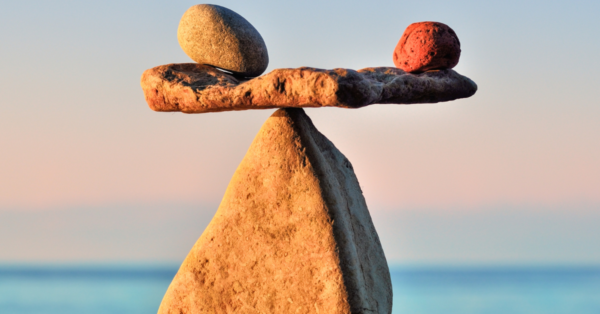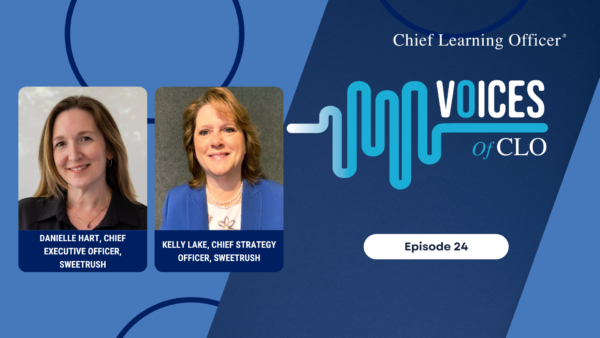 Hello CLO audience! You may have seen my stories floating around the magazine and website over the past seven months, but I’d like to formally introduce myself with the start of my new blog, Life and Learning, where I will explore all things life … and learning! I’m a recent graduate of Illinois State University, with a degree in journalism and a minor in sociology, taking on the big city of Chicago with my first full-time job as an associate editor for Chief Learning Officer magazine.
Hello CLO audience! You may have seen my stories floating around the magazine and website over the past seven months, but I’d like to formally introduce myself with the start of my new blog, Life and Learning, where I will explore all things life … and learning! I’m a recent graduate of Illinois State University, with a degree in journalism and a minor in sociology, taking on the big city of Chicago with my first full-time job as an associate editor for Chief Learning Officer magazine.
I thought I’d kick off my blog with some thoughts on recent stories I’ve been working on about sexual harassment in the workplace. I began my first story on the topic, “Training Not Enough to Prevent Sexual Harassment,” with the growing list of accused sexual harassers: Harvey Weinstein. Bill Cosby. Roger Ailes. George H.W. Bush. Donald Trump. Unfortunately, for my latest story, “Sexual Harassment Prevention Starts With Leadership,” I could have just updated the list to the most recently accused: Matt Lauer, Charlie Rose, Roy Moore, Louis C.K.
One of my sources said something interesting when we spoke. Denise Dudley, former CEO of SkillPath Seminars, a large public training company, pointed out that having a president who has been accused of sexually harassing women and brags about it has made a lot of men feel like they have license to act in ways they hadn’t before the election. “We’re entering a dark period right now. I believe that’s why we’re seeing a lot more bigotry and a lot more racism, too,” said Dudley, who holds a Ph.D. in behavioral psychology.
Unfortunately, I think that’s true. At least 17 women have accused Trump of harassing or violating them, and yet, unlike the rest of the men on the list, he has seen no consequences. Even Trump acknowledges the effects of this power imbalance: “When you’re a star, they let you do it.” And that really gets to the heart of the issue, doesn’t it?
As I pointed out in my latest story, leaders will have to decide whether they want to make preventing sexual harassment in the workplace a C-suite priority in 2018. Fortunately, nearly 9 in 10 employees think they will, according to a recent survey by Next Concept HR Association.
Within the 57 percent of surveyed employees who stated there was room for improvement at their organization for minimizing sexual harassment, there were some interesting demographic splits. Fifty-three percent of men said there was room for improvement in contrast to 60 percent of women and older generations who saw less room for improvement (51 percent) than did younger generations (64 percent).
NCHRA CEO Greg Morton sees the generational demographic split as a positive. “A lot has changed from generation to generation,” he said. “The current White House incumbent is a good example of that at 71 years old. What’s coming is a generation that sees things differently.”
Sometimes I’m afraid I live in an echo chamber of my own generation’s progressive ideas. I’m often so encouraged by the way my friends and peers think and act. In college, I witnessed and was part of many big and small demonstrations and acts of kindness that championed human rights. That way of thinking feels like common sense to me — of course women and men should be equal, both treated with respect and dignity; of course members of the LGBTQ+ community, African Americans and other underrepresented groups should be equal, treated with respect and dignity.
At this critical time in history, I suggest that learning leaders are positioned to take advantage of the wave of resistance furthered by the #MeToo and Time’s Up movements by creating a culture within their organization that’s better for women and minority groups. It’s a chance to make a difference, to teach leaders they have a responsibility to lead with dignity and respect and inspire the whole organization to embrace a more inclusive culture.
We all have a duty to do our part to advance equality and human rights, and CLOs have the unique opportunity to help develop the next generation of leaders to be committed to gender diversity, to focus on training against implicit biases and to create a culture that recognizes and leverages senior female leaders as role models. I am interested to hear your thoughts on this subject: Is it the role of learning leaders to take on this responsibility? Or does this fall on the shoulders of another party?















